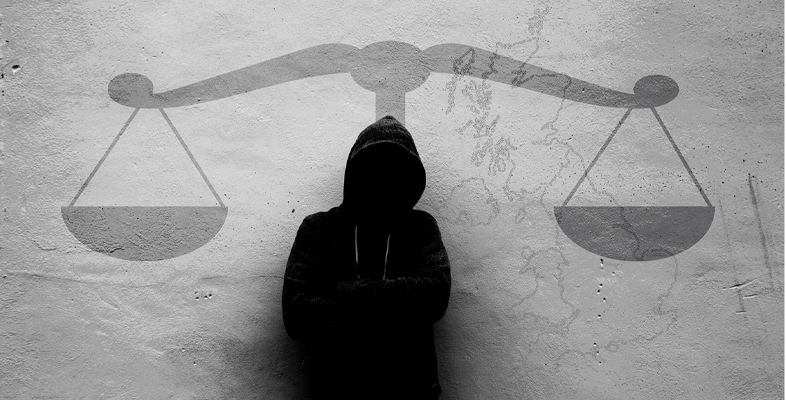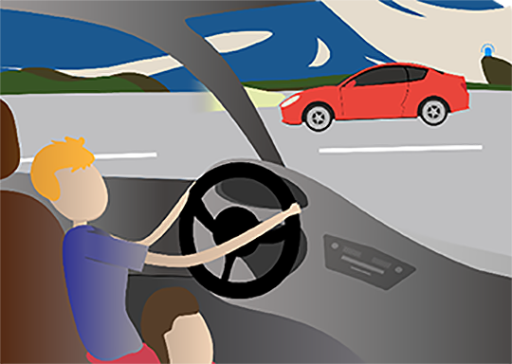2 Ghostbusters on the estate – a case study
Read the following case study in which you meet Charlie, a young white boy who has started to engage in criminal activity.
Charlie is 12 years old and a bit below average height. Although he can barely reach the pedals of a car, this hasn’t prevented him developing a reputation on his estate he could do without. Charlie is called ‘the ghost driver’ because older friends and relatives steal cars and he drives them.
Standing in front of the car seat or perched on its edge, Charlie operates the pedals while standing at the steering wheel he can barely see above. He changes gears with a gear shift he can barely reach and is almost invisible to other drivers, hence his nick name. The ghost driver.
Stolen cars are brought into the estate where he lives by older youths and he gets in to drive them around the more traffic-heavy streets of the town centre. His passengers delight in the stares the apparently driverless vehicle attracts from pedestrians and other drivers. Until, eventually, the police are alerted and the chase is on. The more experienced ‘escape driver’ takes over with the intention of getting back safely to the estate where the objective is to abandon the car and disappear before being stopped. In the car, and on the estate, the ‘Ghostbusters’ theme tune is sung loudly and with relish. The estate community seems to warm to the attention and notoriety that develops around Charlie.
Activity 3 What can possibly go wrong …?
In the box below, sketch out in words what might go wrong for Charlie if he continues with his current behaviour.
Discussion
Charlie is committing a number of serious criminal offences. If caught, he faces prosecution and serious consequences in the form of a sentence that will limit his freedom of movement, possibly with a curfew. He should avoid a custodial sentence if it is his first conviction. It could easily get worse though. The chances of him causing serious injury or a traffic accident are high. He is at serious risk of hurting other people and himself. If this happens, the likelihood of arrest, conviction and custody are high.
The next activity extends your consideration of Charlie’s circumstances by asking you to consider how they may vary according to where he lives and which of the youth justice systems of the UK are likely to be involved with him.
Activity 4 Differences and decisions
Imagine Charlie has been caught, following the intervention of a police patrol car. No one has been injured, but on stopping the car the police quickly establish it is a stolen vehicle. Charlie was not at the wheel. In the boxes below, briefly write out what might happen to Charlie according to where he lives, based on what you have already learned in this course. Choose any two of the four possible jurisdictions – Scotland, England, Wales or Northern Ireland – and don’t forget to state which ones you have chosen in your responses.
Discussion
In England and Wales, there is a possibility that Charlie would be prosecuted. Both jurisdictions have youth courts to handle such cases where a child aged 10 or over can be prosecuted. In each, there may be robust diversionary procedures that might prevent a prosecution and the imposition of a criminal record.
In Northern Ireland, a restorative conference is likely to be convened and a suitable package of support and reparations may be negotiated by the relevant parties involved in what has happened. This might include members of Charlie’s family and other people from the estate. The victim whose car was stolen may also be involved.
In Scotland, a Reporter to the Children’s Hearings system will prepare a report to present to a Hearing involving local social services and members of Charlie’s family.

